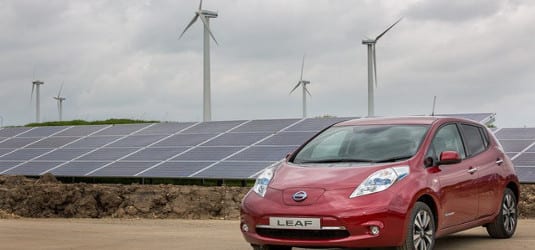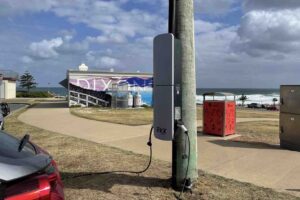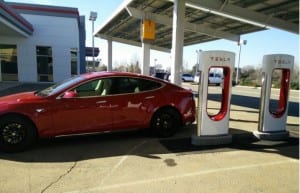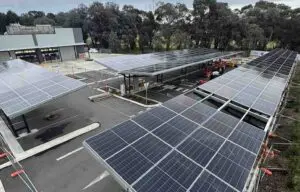The Japanese car giant’s largest EU factory is now powered by 4.75 MW of solar PV, edging it closer towards a virtuous circle of clean energy production and electric vehicle output.

Tucked away in the northeast of England, Nissan’s largest car factory in Europe has long been an essential employment hub in a part of the country that has previously struggled to adapt to a post-industrial Britain.
And now the Sunderland plant – on the year of its 30th anniversary – has another reason to cheer following the connection of a 4.75 MW solar PV plant next to the factory. The 19,000 solar panels will work alongside 10 wind turbines already installed onsite to generate more than 11 MW of clean electricity for the car factory – with the renewable energy going towards powering the production of Nissan’s all-electric LEAF vehicle.
Nissan first embraced renewable energy in 2005 with the installation of the 10 wind turbines at the site. With solar’s support, clean energy meets 7% of the plant’s annual electricity needs – enough to produce 31,374 electric vehicles (EVs) each year.
Partnering with Nissan was European Energy Photovoltaics, who installed the solar farm within the loop of the Nissan test track. The company’s ultimate aim is to produce 100% zero emission vehicles using 100% renewable energy.
So far in Europe, Nissan has built more than 50,000 LEAF cars, and its new model boasts a range of 250 km on a single charge.
“With 10 wind turbines already generating energy for our Sunderland plant, this new solar farm will further reduce the environmental impact of Nissan vehicles during their entire lifecycle,” said Nissan’s SVP for manufacturing, purchasing and supply chain management in Europe, Colin Lawther.
Nissan also confirmed that it will install energy storage solutions at all of its major European offices by the end of 2017. The company is working on a residential energy storage system called xStorage, which it is developing alongside Eaton. The battery will be designed to give Nissan electric vehicle batteries a “second life”, as well as enabling customers to better manage their energy consumption and patterns.
This article was originally published on PV Magazine. Re-produced with permission.










